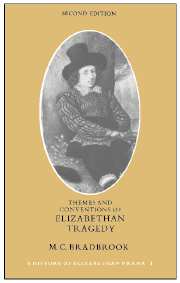9 - THOMAS MIDDLETON
Published online by Cambridge University Press: 08 January 2010
Summary
Middleton's tragedies are as similar in their methods of construction as they are different from the plays already considered. Rowley's name appears on the title-page of The Changeling, but it is difficult to see the possibility of his sharing in the main plot, for its unity is of a kind which not even the most sympathetic collaboration could achieve.
The connection between the two plots of this play is, however, very carefully worked out. It is indicated even in the title, ‘The Changeling’, which describes both Antonio, the innocent, and Beatrice-Joanna, the inconstant woman (a usual meaning — see Anything for a Quiet Life, II. i. 71, and OED sub verb.).
The construction of the play is masked by the greater naturalism of the treatment. Compared with the characters of earlier plays, Middleton's are fuller, more natural and human. Their motives and actions may be conventionally ‘Italianate’ (they have vestigial remains of the Revenge code in the melancholy of Tomazo the revenger and the appearance of the ghost), but their feelings and responses are normal. Beatrice-Joanna's famous outburst, when the murderer demands possession of her as a reward:
Why 'tis impossible thou canst be so wicked
Or shelter such a cunning cruelty
To make his death the murderer of my honour —
(III. iv. 121ff)is only the most obvious illustration of Middleton's interest in the way the mind works.
- Type
- Chapter
- Information
- Themes and Conventions of Elizabethan Tragedy , pp. 206 - 232Publisher: Cambridge University PressPrint publication year: 1980



